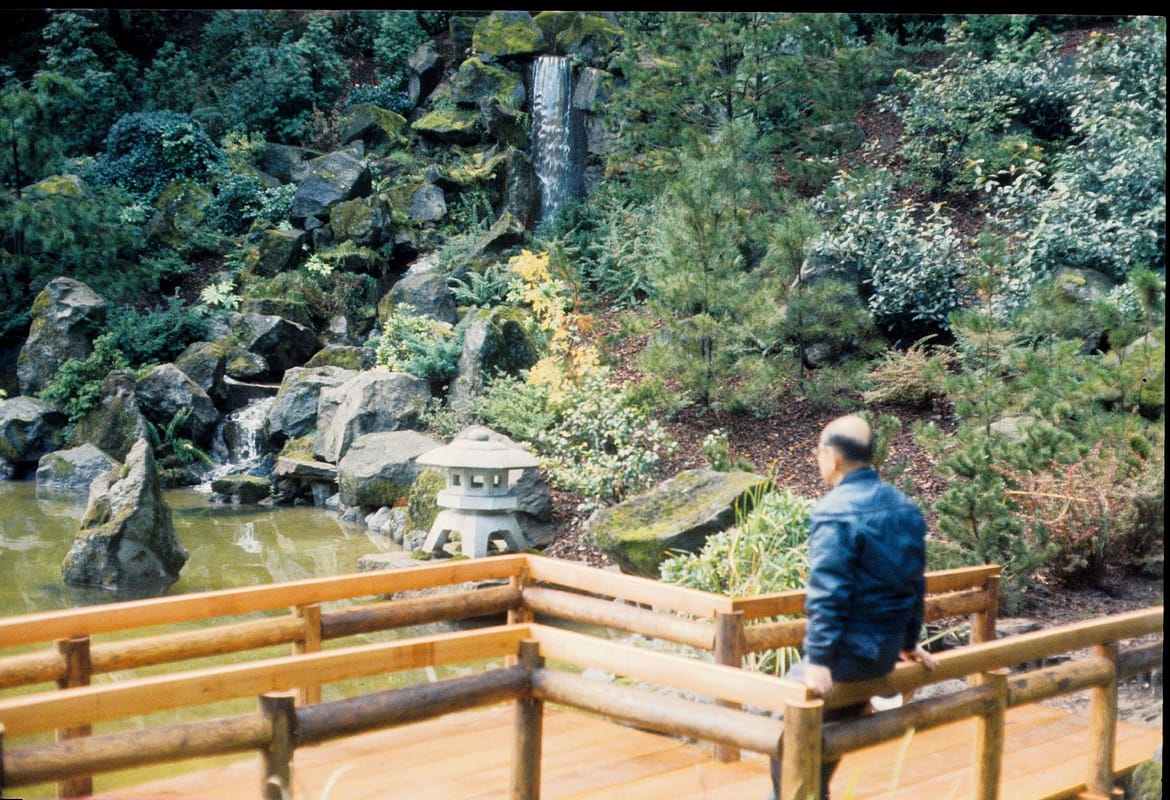In 2023, Portland Japanese Garden celebrated its 60th birthday! In 1963, our organization was founded when Portland civic leaders banded together to build a Japanese garden on the site of an abandoned old zoo in Washington Park. These individuals wanted to provide the citizens of Portland with a garden of great beauty and serenity and forge a healing connection to Japan on the heels of World War II. Now, Portland Japanese Garden is known globally as the most beautiful and authentic Japanese garden outside of Japan and the preeminent Japanese cultural organization in North America.
In Japanese culture, year 60 (kanreki) is seen as the beginning of a new chapter, or a rebirth, and is filled with hope and possibilities.
Watch a video about our history
Below are some of our favorite stories that explain and explore our history and role in this shared community:
From Asphalt Grounds to Urban Oasis: Portland Japanese Garden was Once a Zoo
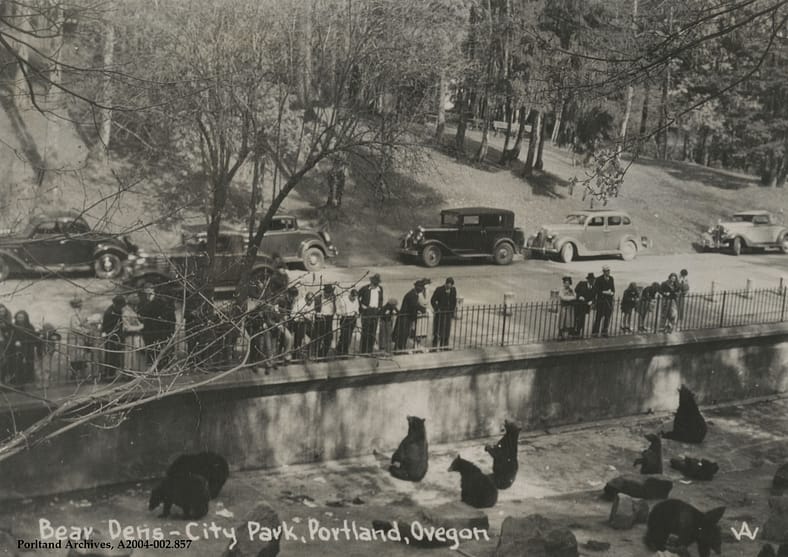
Because of the careful and diligent maintenance of its grounds by generations of gardeners, facilities technicians, volunteers, and more, Portland Japanese Garden appears as though it has been perched atop the West Hills for as long as Washington Park has existed. It may be surprising to know that the site it sits on today was once the old location of the Portland Zoo, now known as the Oregon Zoo.
Here is Oregon covers Portland Japanese Garden’s transformation from abandoned zoo to “tranquil scene”
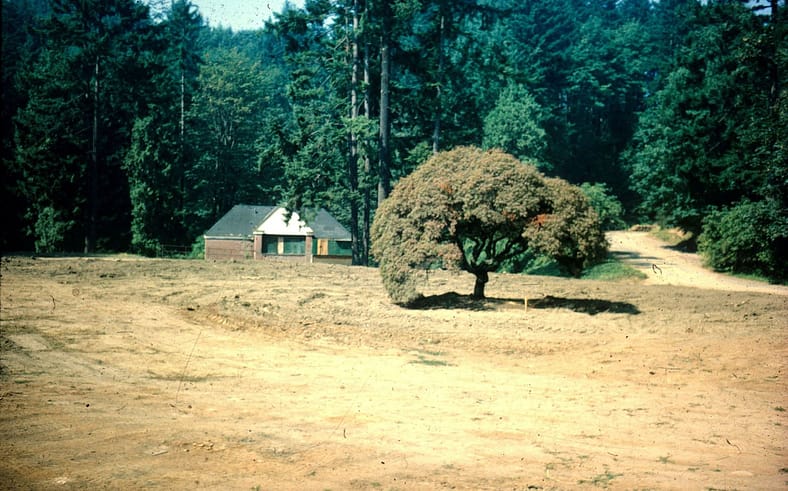
Here is Oregon, a news site created by The Oregonian to “lift and celebrate Oregon” recently published a story that provides insight into the amazing transformation that took place at Portland Japanese Garden over sixty years ago. In a lovely and heavily researched article, journalist Janet Eastman writes, “A half a million visitors see the Portland Japanese Garden every year, but few know the tranquil scene’s wild history when zoo animals lived on the rugged hilltop in Southwest Portland’s Washington Park.”
Building Bridges: Robert C. Burbank, the WWII Veteran Who Built Portland Japanese Garden’s Moon Bridge

Like most bridges in Japanese gardens, the Moon Bridge in the Strolling Pond Garden is not a mere conveyance. It is a carefully considered piece of architectural art that introduces new perspectives of the landscape. People who cross it tend to stop and start, double back, and rotate around more than they ever just proceed in a straight line. This bridge was built in the late 1980s by Robert C. Burbank, a World War II veteran and craftsman. It replaced an older version that no longer could support the foot traffic.
Peace and Reconciliation: Portland Japanese Garden’s First Garden Director Kinya Hira Recounts Early Days
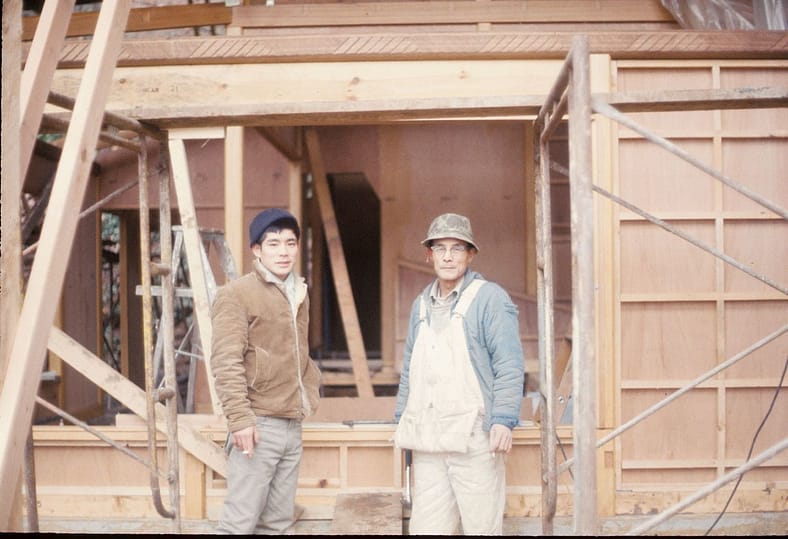
In addition to the Garden’s original designer, Professor Takuma Tono, ten Garden Directors from Japan have overseen the development and maintenance of the original five gardens in turn, making our Garden unique among Japanese style gardens in North America. We are grateful to share this beautiful letter from Kinya Hira, who was the first Garden Director for the Garden from 1964-69.
A Japanese Garden with Oregon Ingredients: Where Early Garden Leaders Traveled in the Beaver State To Find Materials

Unlike many Japanese gardens around the world that depict one style, the unique collection of five different styles at Portland Japanese Garden required early Garden leaders to motor to locations near and far across the Beaver State to find the right materials. While their collection of many materials, such as stones, from wild areas in Oregon is no longer allowed today, it was permissible in the 1960s. Interviews conducted by former Portland Japanese Garden Board of Trustees President Ed McVicker (2009-10) help illustrate their efforts.
A “Magnificent Visual Introduction”: The History Behind Portland Japanese Garden’s Antique Gate

One of the most cherished elements of Portland Japanese Garden is something millions of its visitors have passed through for decades: the Antique Gate. Situated at the start of the hill of the Entry Garden, the Gate is believed to be about 200 years old and is from Sapporo, Portland’s sister city in Japan. Because of the expert care and maintenance it and its surroundings have received, it would be easy to believe that the Antique Gate has been in its location since time immemorial. However, its installation came nearly 10 years after Portland Japanese Garden opened to the public and only after original plans for it stalled.
Letters from Portland Japanese Garden’s Original Designer Demonstrate Cultural Diplomacy was Foundational Element
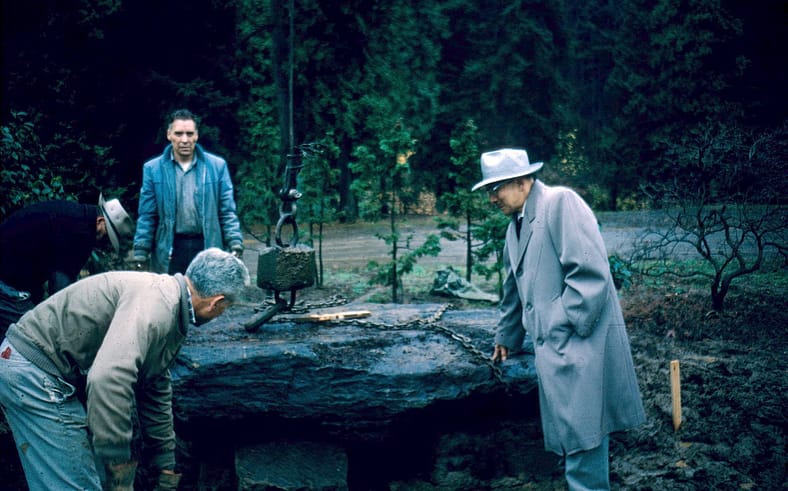
When Portland Japanese Garden’s landscape was being planned, its original designer, Takuma Tono, determined that it should feature different garden styles that beckon back to different points in his native country’s history. While it was a departure from the norm, it was a brilliant decision that has helped inform millions of visitors on the nuances of Japanese garden design. That Tono would design the Garden this way comports entirely with a man who was a passionate educator.
Three Years Old and Interned in an American Concentration Camp

In 1942, Portland Japanese Garden Board of Trustees Vice President Dr. Calvin Tanabe and his parents were rounded up by the government along with other Japanese Americans and Japanese immigrants living in Oregon. They were forced into Minidoka War Relocation Center in Idaho, one of ten American concentration camps constructed during World War II. It is his first memory. Tanabe sat down with Garden staff to share his story.
Mt. Hood: Portland’s “Mt. Fuji”
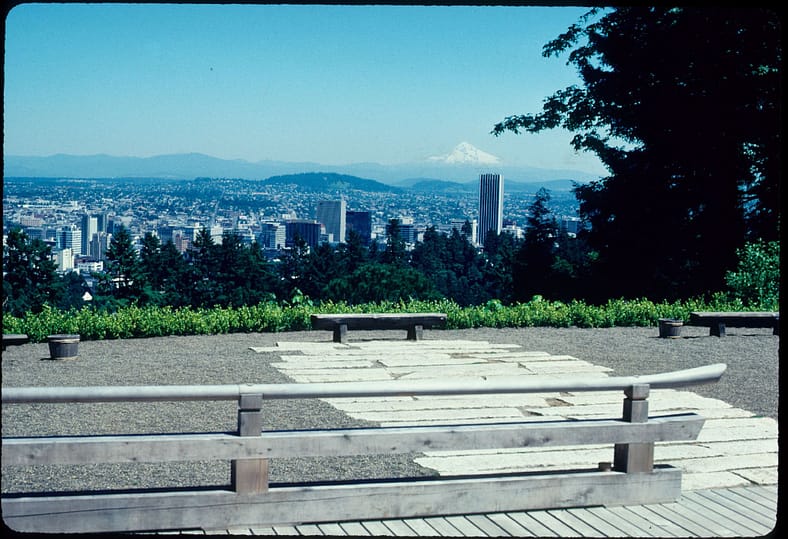
The uninterrupted view of Mt. Hood from Portland Japanese Garden’s East Veranda is a beautiful example of shakkei, or “borrowed scenery,” in which a view of a natural landscape is incorporated into a garden’s design. It is reported that when the Garden’s original designer, Professor Takuma Tono of Tokyo Agricultural University, saw Mt. Hood he likened it to one of Japan’s most beloved natural landmarks: Mt. Fuji.
High-Ranking Japanese Officials Who Have Affirmed the Authenticity of Portland Japanese Garden

Portland Japanese Garden’s reputation as “the most beautiful and authentic Japanese garden in the world outside of Japan” is one that has been burnished over the decades by the many dignitaries from Japan who have walked its grounds. To have earned this reputation is something the Garden cherishes and does not take for granted. Here are a few of the notable dignitaries who have had a presence here in Portland.
How Community Generosity Led to the Donation of a Maple Tree
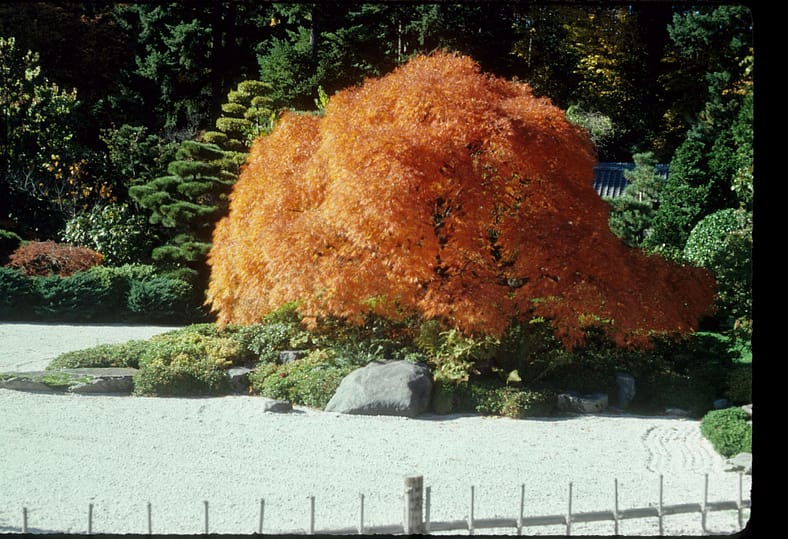
There are several elements to Flat Garden that contribute to its stunning beauty. Among them is the larger of two Japanese maples on its northern side. Symbolic of autumn splendor, this tree arrived at Portland Japanese Garden in November 1972, a generous donation from Mrs. Brown of Sellwood.
Kasagi: Gates of Hope

In 2013, two nearly identical beams of a sacred Shinto gate landed on the Oregon coast after having been tragically washed away in the Great East Japan Earthquake of 2011. After traveling 5,000 miles across the Pacific, incredibly, these two crossbeams, know as kasagi landed within 120 miles of each other less than one month apart. This inspired a quest by Portland Japanese Garden to return the two battered pieces of wood as a message of support for the people of Japan.
Portland Japanese Garden Celebrates 60 Years with Gala in Tokyo
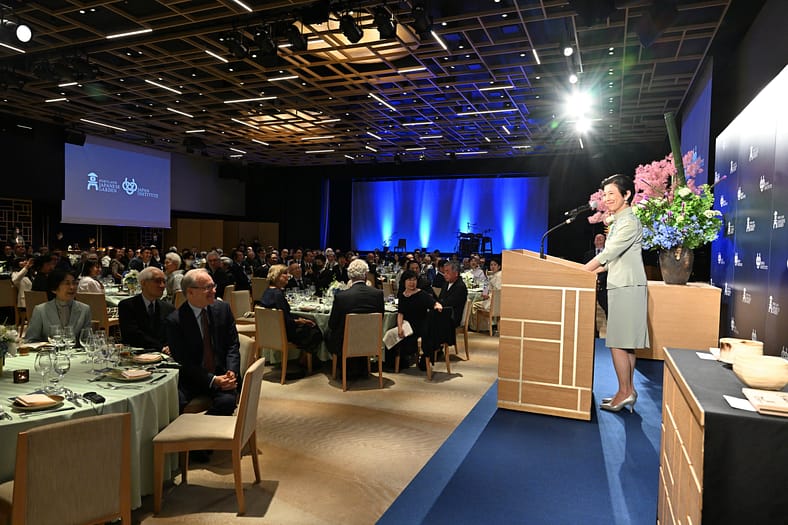
Part of what has earned Portland Japanese Garden its reputation as the world’s most authentic and beautiful Japanese garden outside of Japan are the direct ties it has with Japan. The overseas friendships and partnerships were an invaluable and foundational element of the Garden’s establishment in 1963 and have grown exponentially in the decades that followed. Now in 2023, the significance of Portland Japanese Garden in Japan has manifested itself in a variety of ways including an International Advisory Board comprised of admired and respected thought leaders from both Japan and the world abroad, multiple visits to Portland Japanese Garden from high-ranking Japanese governmental officials, and most recently, a 60th anniversary gala in Tokyo that welcomed many of the nation’s most notable figures.
Calling Upon the Past to Build the Future: The Zagunis Castle Wall

When visitors come to Portland Japanese Garden, one of the first features they will notice is a massive stone structure at the west end of the entrance. Measuring 18.5 feet tall and 185 feet long, it rises up to both greet visitors and transport them to another place and time. Walking past it, the visitor catches his reflection in an oversized stone and pauses. Staring up at the dry stacked rocks looming above, this structure prompts more questions than answers: just what is this giant wall?
Japan Institute: A New Path for Portland Japanese Garden
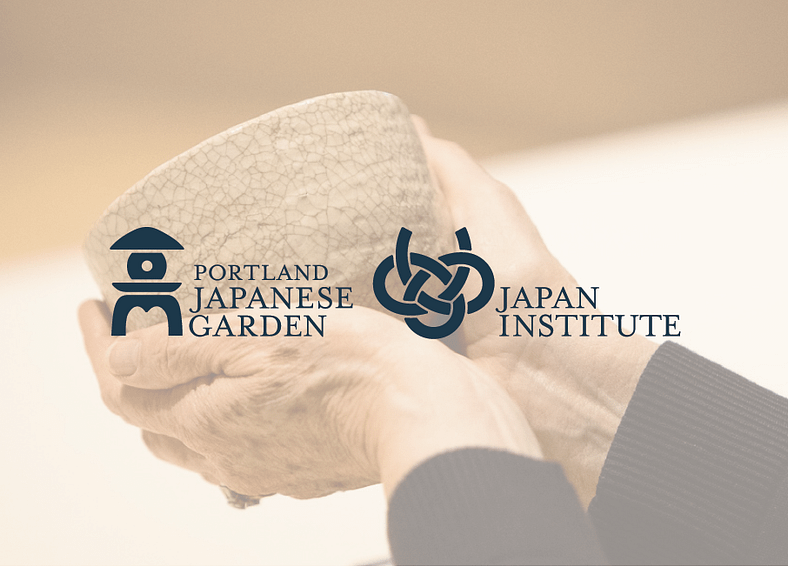
In 2021, Portland Japanese Garden shared its vision for a new path forward for the organization with Japan Institute, which would later be established in 2022. The Institute was created in order to share and expand programs of the Garden more broadly around the world, expand international partnerships, and continue to engage diverse people in shared experiences and conversations about peace, beauty, and connection of nature.
Maggie Drake: The First Female Board Member of Portland Japanese Garden and One of its First Supporters

Inspired in the late 1950s by growing cultural ties between Oregon and Japan, Mayor Terry Schrunk and members of the Portland community conceived the idea of building a Japanese garden on the site of the old zoo in Washington Park. This initiative sparked the interest of Margueritte (Maggie) Drake, who showed up at the first Japanese Garden committee meeting held by the city of Portland in 1963.
An Historic Moment: Portland Japanese Garden’s 2017 Cultural Crossing Expansion

In 2017, a decades-old vision conceptualized by the dreamers and doers at Portland Japanese Garden became reality. Nearly three thousand people came to witness the conclusion of construction and celebrate our beautiful new beginning: the Cultural Crossing expansion.
Do you have a story to tell about Portland Japanese Garden’s past? Email marketing@japanesegarden.org!
